





Blaauw I am a year 9 Dubai My Repton journey go and I am a proud elieves in our ethos which is n everything we do in
to participate in this study, e my experience at Repton e that the teachers at our y individual needs The hers never fail to support academic journey My yed a big role in helping idence and apply my full subject, my learning has etter and I feel happier in achers here at Repton are dgeable. All lessons are planned meticulously with challenging aspects to keep us engaged My transition to Repton has gone very well because I have the support to be able to achieve my best
As part of this process, I was interviewed by a representative from Cognita and I was asked to reflect on my experience upon arrival at Repton I feel happy that I could express my views openly and that I had the opportunity to share my feelings regarding the student experience here.
I am a firm believer that it is important to have great student–teacher relationships, with teachers who know their students and can guide them every step of the way. At Repton, our learning can only improve, as our teachers know our strengths and weaknesses
Thank you to Cognita for this amazing opportunity and all the effort that has gone into this study. I enjoyed openly expressing the ideas that came to mind and I wish Cognita the very best moving forward
Contributors to this report
4 students aged 9– 14, Repton Abu Dhabi
8 students aged 10– 15, Repton Al Barsha
8 students aged 9– 14, Repton Dubai
4 students aged 11– 12,The Royal Grammar School Guildford Dubai
4 students aged 12– 13, Horizon International School
6 students aged 10– 11, Horizon English School
4 students aged 10– 11, Ranches Primary School
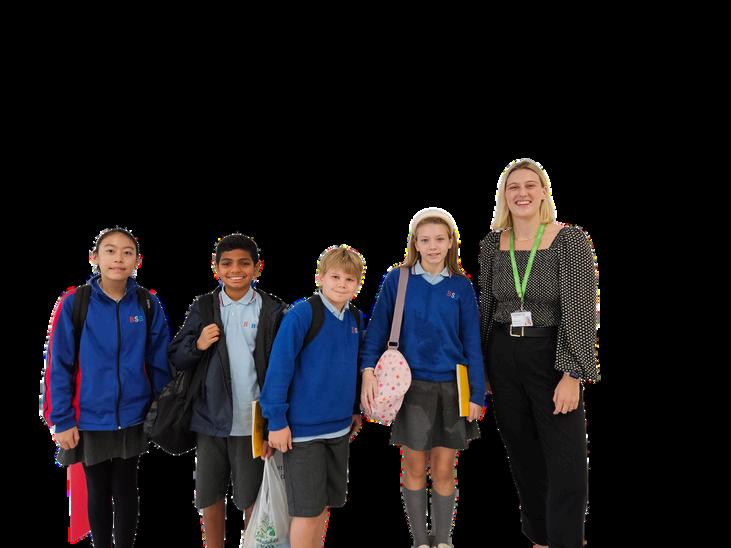
Kristie Overton (author) Head of Group Education Insight and Projects


Simon Camby (author) Group Chief Education Officer
Doan Tran (designer) Content Manager (Group Education Team)
The ‘In Their Own Words’ series, shares the insights of students from around our global community, regarding important topics in education. We hope that this series encourages educators to provide varying opportunities for students to share their views and use their voices to have an impact, including through focus group discussion opportunities We believe that such opportunities support students to show leadership, demonstrate agency and impact their own learning journey.
The series sits as part of Cognita’s wider commitment to ensuring that student voice is at the very heart of our work.
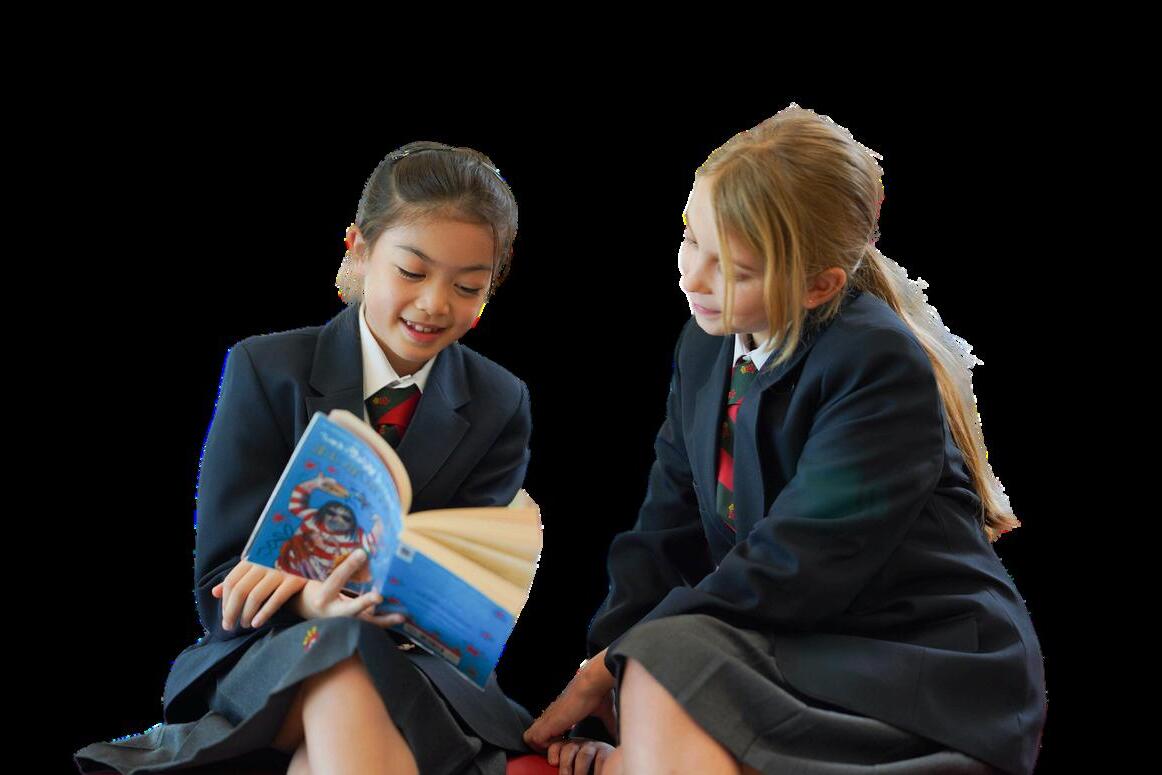
For this report, we enjoyed listening to the insights of students from Cognita schools in the United Arab Emirates (UAE), during a number of student focus group sessions In these sessions, they shared how school leaders and teachers can best support students as they move into a new school phase, either within the same school or when moving between schools This snapshot highlights five of their key takeaways The report also provides some case study examples of how their schools support students to prepare for and adjust to the next phase of their educational journey
Within this report, the term ‘transition’ refers to the moves that children and young people make ‘within, into, between, and from schools’ Similarly, the period directly after this transition is referred to as ‘the induction period’
1

At Cognita, we consider transition periods to be highly important times in a child’s educational journey, as they can bring numerous changes and provide a host of new and exciting opportunities. Cognita considers that schools should intentionally plan and regularly evaluate how the ‘transition’ process works at their school, to ensure the best experience for the students in their care This view is reinforced by existing literature which cites that ‘good school transition programmes have been linked to better outcomes’1
2
When referring to existing evidence in this area, we observed that ‘children and young people's views are lacking in transition literature’ and the corresponding recommendation that further research is required to ‘better understand their perceptions’, including ‘facilitating open, practically focussed conversations…about what good transition support could look like’ At Cognita, we feel privileged to be able to contribute to this work, including engaging with students in a rapidly developing jurisdiction, in this respect.
As a result of high net migration flows into the UAE, schools in the country are accustomed to frequently welcoming new students and students in the UAE may be more likely to have experienced a move between schools at a younger age As a result of this, we have intentionally focused on the UAE within this report, identifying that Cognita students in the UAE have a particularly strong understanding (informed by personal experience) of the significance of positive ‘transitions’ between educational phases
Whilst rooted in evidence gained in the UAE, Cognita considers that the takeaways captured within this report are valuable for schools in any jurisdiction We hope that the insights captured in this report will support all schools to think about how to empower students as they move between phases of their educational journey – be it an internal or external move.
All insights in this report were gathered during February 2025
2 Demkowicz et al , 2023, ‘It's scary starting a new school’: Children and young people s perspectives on wellbeing support during educational transitions
3 Wood, Putwain and Freitas Fernandes, 2025, “I get by with a little help from my friends : The importance of peerled emotion work during the primary to secondary school transition
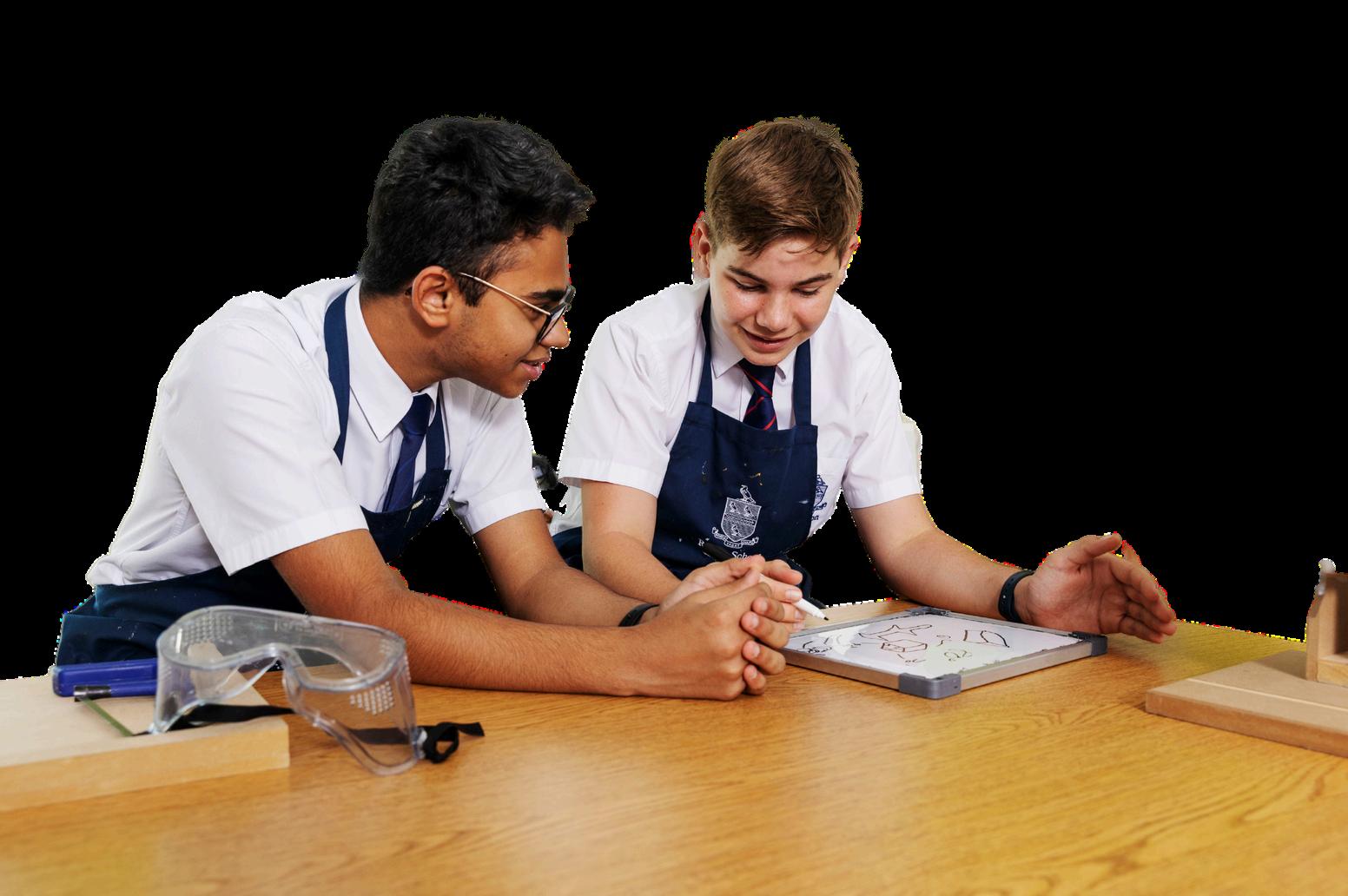
‘backed by a swathe of opinion recently there is a distinct need for research that captures children's perspectives of their transitional experiences’3
Students think change is good - they should get used to and celebrate it
When listening to the participating students, we were delighted that they unanimously agreed that change is a good thing – an opportunity for something new and exciting, rather than something daunting or something to resist. Their reasoning for this was two-fold – change is a necessary part of life and change brings new opportunities to develop and improve.
For example, students from Horizon International School explained their awareness that as adults living in a rapidly evolving, globally connected world, there is no doubt that high levels of change will be characteristic of their futures As a result of this, they considered it to be highly important that they have opportunities to be exposed to high levels of change during their childhood - to develop the skills to adapt effectively and to gain confidence in their ability to do so.


4 5
Our students who had most recently moved into a new school or phase explained that they perceived this change positively, as it provided them with an opportunity to exhibit resilience, independence and selfsufficiency, which they acknowledged were important life-long skills Similarly, students who were preparing to soon move to secondary school expressed their excitement and positivity about moving onto the next phase in their educational journey Their reasoning for this included the opportunities to forge new friendships, access new leadership roles and to accelerate their subject-specific learning (with devoted curriculum time for certain subjects in secondary school)
4 StudentsfromReptonAbuDhabi,ReptonDubai,TheRoyalGrammar SchoolGuildfordDubai,ReptonAlBarshaandHorizonInternational Schoolhadrecentlytransitionedbetweenschoolsorschoolphases
5 StudentsfromHorizonEnglishSchoolandRanchesPrimarySchoolwere activelypreparingfortheirtransitionintosecondaryschoolatthetimeof thefocusgroupsession
Change is good, but sometimes you need to be sturdy in life. You have to experience change to improve, but sometimes you should wait for the right move
Year 6 student from Horizon English School, Dubai
To help students to feel excitement for their progression and pride in their achievements so far, the students unanimously agreed that it was important that schools crafted specific initiatives to mark and celebrate the ‘transition’ period, such as graduation and ‘transition’ ceremonies. A case study example of how The Royal Grammar School Guildford Dubai (RGSGD) celebrate their students moving into secondary school can be found on the next page Students from RGSGD and Horizon International School further explained that schools can build excitement about the next phase in the educational journey by intentionally establishing a distinct identity between different sections of the school.
The students also shared their views that as change is a consistent feature of life, regular exposure to change at school is important for their development, not limited to the ‘transition’ period between school phases Linked to this, there was unanimous agreement from the student groups that mixing form classes with sufficient regularity may help students to feel comfortable with change and provides opportunities for growth and development Students explained that by switching classes during their educational journey, they are able to become comfortable with establishing themselves socially amongst a new group However, in almost all cases it was suggested that school teams should establish some helpful parameters – namely, that students should ideally remain with a few people they are already friendly with and that there should be open communication channels to air concerns to teachers if they experience any difficulties with integrating into the new group
6 UCLInstituteofHealthEquity 2015 ImprovingSchoolTransitionsforHealthEquity

‘School transitions can provide a key opportunity for children and young people to build stress resilience how susceptible people are to stress and how well they cope with it.’6
Do we have distinct ways of marking the transition between phases of our school that students are excited by?
Could we benefit from seeking student feedback (as well as parent feedback), regarding our approach to mixing classes?
*All self-reflection questions are repeated in Appendix 01 for ease of use in school.

Our students from The Royal Grammar School Guildford Dubai shared with us their great experience of moving between primary and secondary school, which was marked by them receiving a new tie on their ‘Step Up Day’ The students explained that this day not only marked their graduation from the primary school but also the opportunity to start anew, with new opportunities and responsibilities in the secondary school The school shared the following information about this special day
‘On ‘Step Up Day’,Year 6 students at RGS Guildford Dubai do more than move classrooms, they climb the central staircase to the second and third floors of the Senior School, marking both a physical and metaphorical ascent Awaited by their future teachers and peers, these students take part in a ceremonial rite of passage: the removal of their Prep tie and the awarding of their Senior tie in front of the entire Senior student body Where possible, this tie is presented by Dr Jon Cox, Headmaster of RGS Guildford UK, adding a layer of legacy, continuity, and deepened significance
This symbolic gesture, simple in form yet rich in meaning, publicly recognises the students’ readiness to embrace new responsibilities, higher expectations, and the RGS habits and values of aspiration, reflection, and respect It is a powerful way to welcome them into the Senior phase, and to affirm their place in the story of RGS Guildford Dubai.
As a through-school, the event ensures that phase boundaries feel meaningful rather than artificial. At RGS Guildford Dubai, Step Up Day not only celebrates the culmination of Prep life, but sets the tone for the habits, mindset, and maturity expected in the years ahead. It is a treasured tradition and a defining moment on each student’s journey to becoming an Old Guildfordian
Louise Ford, Head of Senior School
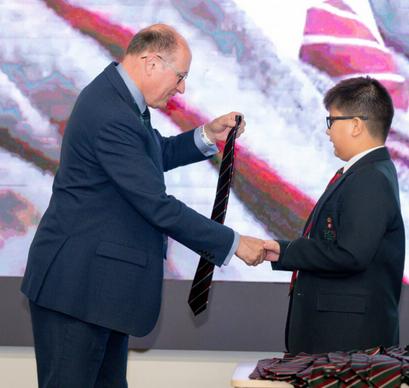
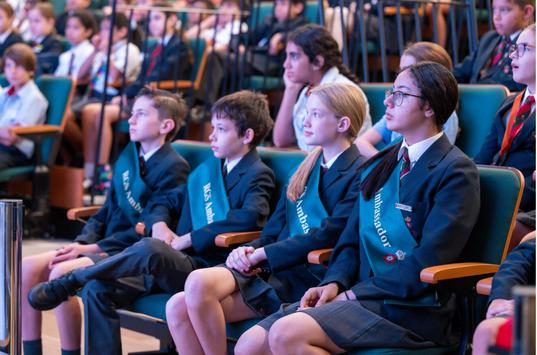

It was clear from these students that their school’s effort to mark the transition between phases with a purposeful, memorable event built a sense of pride amongst students regarding what they had already achieved, alongside excitement about the next step on their journey Cognita considers this initiative by The Royal Grammar School Guildford Dubai to be a leading example of how to ensure that students in an all-through school experience exciting change points and school phases with distinct identities
Induction activities should be broad and student led
Another recommendation from the students was that schools should establish a broad range of introductory processes and activities to help support students with their transition and that where possible these processes and activities should be student-led Examples of such activities and processes included open days, personalised tours, trial days, regular communications with incoming families and support for new students upon arrival.
Our students who were soon preparing to move to a new school explained that they felt comforted by having visited their new schools multiple times already, illustrating the value of such activities. Similarly, they felt comforted by the fact that they would be starting the academic year a few days early, to get used to the new environment before commencing formal studies Our students who had moved between phases within the same school attributed the same value to ‘moving up days’ occurring before the end of the academic year
Thinking in more detail about what would support them during the ‘transition’ period, students from our UAE schools consistently felt that induction activities and processes should be student-led wherever possible, with existing students taking responsibility for welcoming new students Their reasoning for this was that they would feel more comforted by peers informing them about their new school (or phase) than adults

To enable existing students to lead the induction process, our student participants had the following recommendations for schools:
Don’tunderestimatethe valueofasupportive buddy
It was unanimously agreed that all new students should be allocated a buddy, so that everyone has someone to turn to upon arrival into a new school. Students from Repton Al Barsha recommended that older students could play a useful role here, for example groups of new Year 7 students could be connected with a Year 8 student ambassador
Provideexisting studentswith opportunitiestobeable toshowcasetheirschool tonewstudents
It was suggested that existing students should work alongside teachers to ‘present’ their school to new students both during open days and induction assemblies for new students or families (upon arrival in school)
Studentsshouldlead schooltours,particularly whenchildrenare attendingwiththeir parents
The students suggested that where possible, students should lead tours with new families as they have the most authentic view of the school Reflecting on their own experiences of touring other schools, the students explained that when a student was involved with this, they felt more confident to ask questions and could carefully consider the student’s perceptions.
Considerofferingsmallgroupadvicesessionsled byexistingstudents
The students finally suggested that it could be beneficial for existing students to run some informal small-group advice sessions, providing new students with an opportunity to ask questions in a more intimate setting. Students from Horizon English School suggested that this could be made possible by older students visiting new students during form time.
At Cognita, we believe that our students are the most important ambassadors at every school. Considering this, we are wholly supportive of the students’ suggestion that existing students should (where possible) be involved in leading activities at key ‘transition’ points. We consider that this would help to send the important message to new families in a school that positive exchanges between peers and student leadership are central to the school’s identity
The Education Endowment Foundation advises that schools should consider how ‘older children’ are ‘involved in buddying, peer mentoring or other transition connections’ when planning their approach to transition Existing literature also notes that 7 ‘there is a need for further research on the way children can be partners in the transition process ’8
How do we involve students in the process of welcoming new students into our school (or section of the school)?
Could we adopt any new initiatives to partner with our students when welcoming new students into the school?

When reflecting on the most important success factor for settling into a new school, positive wellbeing was at the top of our students’ list. Students from Repton Al Barsha explained that student wellbeing must be the top priority when welcoming students into a new school (or phase) and that good student wellbeing is underpinned by positive, trusting and kind relationships between students.
To enable effective relationship-building between peers following a transition, the students considered it to be important that schools create the right conditions and devote enough time and space for students to build social connections and establishing their footing within a new group.The students’ suggestions regarding how to support peer relationship-building are captured within this takeaway
You can catch up on lessons...what really makesyou enjoyschool is your friends,your teachers andthe connectionsyou have
9
Students from multiple schools shared the view that there should be at least a few days at the start of the academic year where lessons are primarily focused on getting to know each other and building social cohesion, with this being a necessary step in building a good environment for learning The students suggested that within such lessons, teachers can accelerate relationship building and break down barriers by prioritising social activities in the classroom (e g quizzes, presentations and speed-dating inspired ice-breaker activities ). Students from Repton Abu Dhabi shared their view that schools should not rush through these activities in favour of progressing quickly into syllabus teaching, as students may be unable to excel academically without first building strong relationships with their peers as a foundation.
9 AsuggestionfromstudentsatRanchesPrimarySchool,whichlinkstoan articlefromTheCenterforProfessionalEducationofTeachers(CPET)at TeachersCollege,ColumbiaUniversity(Vebrek,2019,SpeedDating:A ProtocolforStudentDiscussion)

Students from multiple schools noted that they found it easier to bond with others when taken outside of their usual setting (as they were more likely to interact with a wider peer group) and that therefore schools should try to provide opportunities for students outside of the classroom (e g experiences in other parts of the school or involving a short bus ride). However, the students shared that schools should not take students too far out of their usual setting immediately following their school transition In line with this, there was hesitation amongst all students regarding the value of trips and residential opportunities in supporting relationship-building at the point of transition Instead, the students involved suggested that schools should wait until the student body is already feeling comfortable in the usual school environment, before offering such opportunities
Finally, our student groups highlighted the ‘clever’ ways that teachers can use seating plans to accelerate relationship-building in the classroom For example, students at Repton Al Barsha praised teachers that intentionally use the seating plan as a tool to support relationship-building throughout the entire class, with purposeful rotations. The students also acknowledged that whilst they might prefer otherwise in the moment, it is beneficial when teachers purposefully seat them with students that they do not already know The students considered that by skilfully using the seating plan, teachers can create a sense of openness and respect that engages the entire class
doesthe
The role of peer support has been ‘identified as fundamental to the success of the transition experience’.10
‘Attention should be paid to facilitate the formation of interpersonal relationships between children in the new school’.11
As a school, do we have a consistent approach to how much time is devoted to relationship-building amongst peers following transitions?
Could we trial any new initiatives in our classrooms to help relationship-building throughout the entire class (e g speed-dating inspired ice-breakers or rotational seating plans)?
Teachers are the people that we lean on most in school –it’s necessary to build a great relationship with them
The students recognised that a similarly important factor for positive student wellbeing is establishing supportive, respectful relationships with teachers. The students involved shared that having strong relationships with teachers was essential for them to enjoy learning and excel both academically and socially In particular, many students reflected on the crucial role that ‘form tutors’ play in helping them to settle into a new environment and supporting them to thrive
The students explained that the form tutor is the first point of contact for a new student and that they therefore play an important role in helping students to navigate uncertainty and adapt to their new environment In line with this, the students felt that it is important that form tutors devote a sufficient amount of time and attention to building trust with their students during the induction period.
The students consistently highlighted the value of ‘form time’ as a new student, calling out three ways that form tutors can provide support during this time
Students from Horizon International School explained that at the start of the academic year, teachers can use form time to get to know their students and for their students to get to know them, in order to build trust They specifically differentiated between the two points, explaining that to build positive reciprocal relationships it is important that they learn about their teacher’s story (‘their race, ethnicity, language, interests’ ), as well as sharing their own 13

Teacherscanuseform timetoreinforce importantmessagesand routines
The students considered that when moving into a new school or phase, there can be many new messages to take on board As such, form time can act as a useful time to reinforce students’ understanding of key processes or routines and to discuss the school ‘values’ and what is expected of them. The students suggested that where the culture or values of a new school may differ from their previous school (or phase), it is useful to be reminded of this. The students explained that this would help to reduce anxiety and help them to feel more confident.
Teacherscanuseform timetomonitorhow studentsaresettlingin, identifyingwhere studentsmayrequire additionalsupport
The students showed an awareness that some students may struggle more with the move to a new school (or phase) than others, due to varying reasons (e.g. ‘how much change they have already experienced in their lives’ ) Linked to this, they explained the important role that a form tutor plays in monitoring how well students are settling in and keeping a close eye on students who may need additional support during the induction period. The students suggested that conducting regular check-ins and establishing strong communication channels with all students is an important responsibility of the form tutor during the induction period
The students built upon this point, noting that it is great when form tutors operate an ‘open-door policy’ during the transition period and offer varied opportunities for students to share their feelings and opinions, to show students that their voices are welcomed and taken seriously In relation to the first point, the students suggested that teachers consider offering designated ‘drop-in times’ for their students During these times, teachers would be committing to being in their classroom with an open-door to students should they wish to gain additional support or speak to them in a more private setting Furthermore, the students explained that they appreciate when form tutors (alongside other teachers) actively and regularly garner their views and feedback, through both discussion sessions and through surveys The students suggested that schools could use regular, short surveys with standardised question lists during the induction period to give students opportunities to share their feelings and to allow teachers to ‘check-in’ on the whole class with ease They further reflected that this would enable teachers to promptly identify any issues amongst their students and to try to ‘fix’ these
14 Quotation from Repton Abu Dhabi students
Recommended content areas for such surveys included initial feelings about school, concerns or suggested improvements and whether students have anything that they would like for their form tutor to speak to another one of their teachers about A case study example of Horizon English School’s innovative approach to offering survey-based opportunities for students to share their views during the induction period (and beyond) can be found on the next page
Students from Horizon International School also referenced the valuable role that Heads of Year play in supporting students following a transition point.Their reflection was that as Heads ofYear are responsible for all of the students in a year group, they play an important role in being able to identify common themes or feelings beyond and individual class and implementing the right strategies in response to these.The students explained that at Horizon International School, each Head ofYear is approachable and supportive and that as a result of this, students always feel that they have someone to turn to (between their form tutor and the Head ofYear)
15 Coffey 2013 Relationships: The key to successful transition from primary to secondary school?
16 Rens Haelermans Groot et al 2018 Facilitating a Successful Transition to Secondary School: (How) Does it Work? A Systematic Literature Review
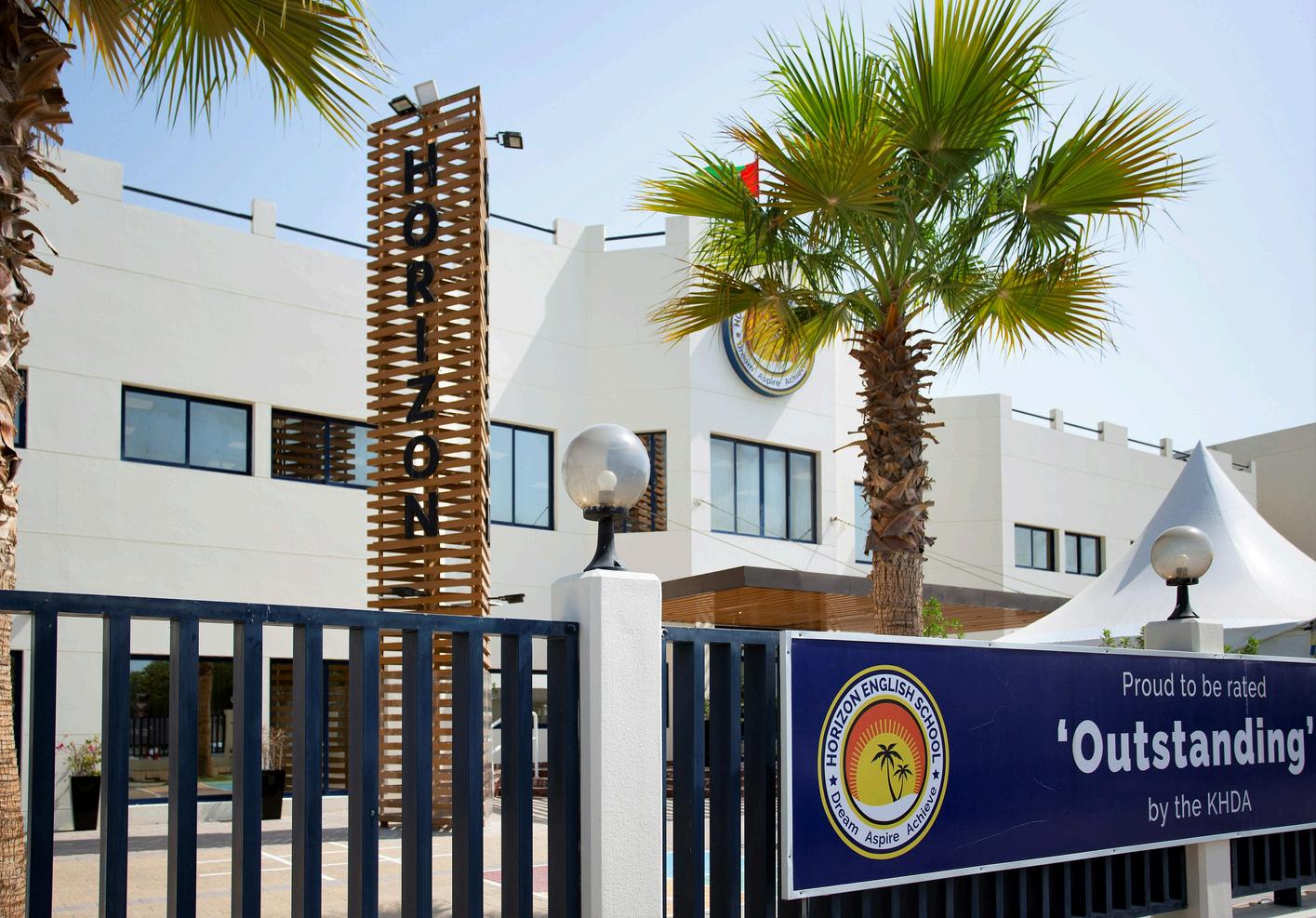
‘The role of the teacher in creating a safe and supportive learning environment cannot be underestimated in helping to foster new relationships both between students and between teachers and students’15
‘Teachers at secondary school that are more accessible to students facilitate successful transitions Simply being available to students is a form of teacher support’16
Do we feel confident that new students consistently feel able to seek out support from their form tutor, as they know we have an open-door policy?
Could we benefit from implementing a short, standardised survey to check in on all students in a class with ease during the induction period?

Our students from Horizon English School reflected on how their teachers use surveys to empower students to share their voices within the school The students explained that a great example of how the school ensures that students are easily able share their views is through surveys which they deliver through QR codes that you can see throughout the school
The students highlighted that they consider it to be highly important that they have quiet, consistent opportunities to share how they’re feeling, especially during periods of change When explaining how this works at their school, they praised how their digital wellbeing check-in system The school shared the following information about this process.
‘This check-in is designed to be quick, easy and impactful: students select a wellbeing score and are then invited to briefly explain what is going on for them
Teachers use this information to follow up, either with a quiet conversation or a supportive action tailored to that child’s needs. The students have shared with us that they find this tool particularly helpful when they are unsure how to start a conversation themselves, as it ensures that their voice is still heard. Staff also find it helpful in tracking patterns or picking up on concerns that may otherwise go unnoticed.
The check-in process is an embedded part of school life and students spoke about how it reinforces the idea that their wellbeing matters and that their teachers care The process allows for regular, subtle but powerful communication, especially at important times of change, such as when students join a new year group or return from a break ’
Lauren Craig, Assistant Headteacher
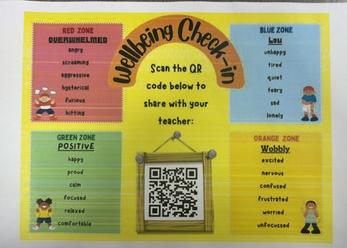

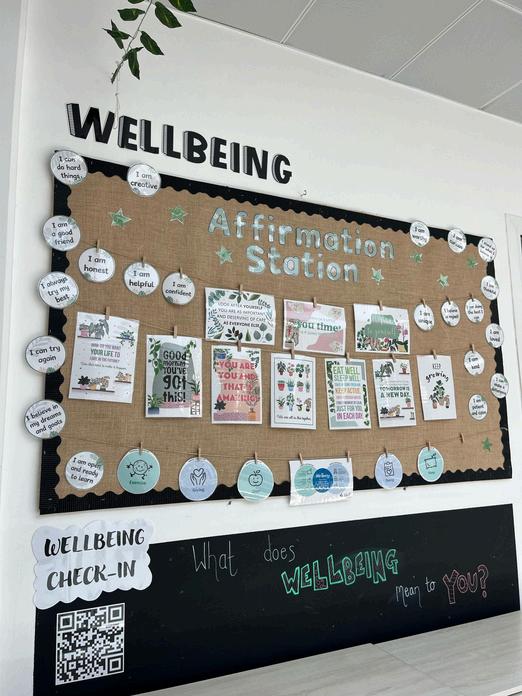
It was clear from these students that they feel highly supported as a result of their school’s effort to attain their views and respond to them. Cognita considers this initiative by Horizon English School to be a leading example of how to ensure that all students feel confident and have regular opportunities to share their views, including students with additional language needs who may consider it more challenging to speak to a teacher directly.
Quickly understanding our learning habits and preferences allows academic success
Finally, the students highlighted that it is important that there are robust processes for assessing their academic abilities, needs and preferences, when they arrive at a new school or phase of the school The students noted that some of these processes could include baseline testing, providing students with opportunities to self-evaluate their subject knowledge and consulting their previous work
Our students who were preparing to move to a new school suggested that this was something that they were most cautious about – that is, that their current teachers knew them very well academically, it could be a big adjustment to have a new set of teachers who would not know about their learning preferences and academic abilities However, the same students explained that they felt comforted knowing that their new schools would be able to obtain some information about them either before or upon arrival, including through assessments and discussions about their previous learning
In accordance with local regulations , schools in UAE frequently utilise standardised assessments to test students’ curriculum-specific abilities, cognitive abilities and reading skills. As a result of this, our students were particularly knowledgeable about the benefits of standardised testing in
helping to gauge a student’s abilities and to respond to their needs upon arrival into a new school or phase. For example, students from Repton Dubai explained that by completing a CAT4 test upon entry into a new school, the teachers are able to identify their strengths and any areas for improvement. Other students suggested that regular, low-stakes tests, such as frequent spelling tests or mathematics quizzes to gauge abilities during the induction period would help teachers to understand their students’ abilities and needs Our students consistently agreed that assessments are a useful tool for teachers to evaluate the abilities of their new students and to identify where students may benefit from interventions either within or outside of the classroom The students explained that by transparently explaining the purpose of such assessments during the induction period, teachers can ensure that students feel comfortable about ‘being tested’.
At our school, we regularly reflect on what we are doing well and what could be better. This helps our teachers to understand us and ensures that they can help everyone to improve.
Year 5 student from Repton Abu Dhabi, Abu Dhabi
Our students from Ranches Primary School, explained that it could also be beneficial for schools to establish a process for students to self-evaluate their previous learning and abilities in the subject areas that they were previously studying, to be able to inform their new teachers. For example, students could reflect on what they find straightforward, what they find challenging, what they feel requires more of their attention and any subjects that they are cautious about. The students shared that this would help them to take responsibility for their own learning and noted that some standardised questions could help them to share a high level of detail with their new teachers. We take pride in the ability of the students at Ranches Primary School to reflect on and evaluate their own learning, which is supported by the school’s innovative approach in this area.
Linked to this, students from all schools shared the reflection that towards the end of the academic year it is beneficial for teachers to challenge students academically, aligning students’ work more closely with the academic expectations for the year group above than for their current year group, to get them ready for the academic challenges which lie ahead. The students suggested that this supports them to feel confident in their academic abilities and to identify where they should focus their attention when they return to school in the new year.
Students from multiple schools reflected that it could also be useful if teachers from their new school (or phase) were able to gain information about students’ performance in key subjects during the previous academic year To enable this, the students noted that a school welcoming new students might benefit from scheduling a reflective conversation with their parents either before the students’ arrival or upon entry. It should be noted that this could be particularly useful for students with additional needs, including students with language-learning needs Another suggestion was that at the point at which a student is moving to a new school (or phase) it might be useful for the record of their studies (most often their ‘book’ in their core subjects) to be kept by their family, in case it is useful for the teachers at their new school (or phase). This valuable suggestion was provided by Year 5 students from Repton Abu Dhabi, who explained that as they move between year groups at their school, their exercise books are given to their new teacher so that they can interrogate an individual students’ depth of understanding and feedback from the last academic year

The Education Endowment Foundation advises that schools should consider how ‘diagnostic assessment’ is ‘used in the new setting to identify knowledge of foundational curriculum concepts and skills’ at the point of transition18
Evidence suggests that ‘students who can assess their own learning are more effective learners and are able to adapt their approach if learning is not working’ , supporting students’ ability to adapt may be beneficial during the induction period 19
Do we effectively and consistently use assessments (both informal and formal) as a tool to quickly understand students’ academic abilities and preferences during the induction period?
Could we use self-evaluation as a tool for students to share their feelings regarding academics during the induction period?
18

It is clear from this process that schools have much to gain from engaging students in important conversations about how to support young people during key periods of change.The students involved highlighted that every school should take time to carefully craft their approach to supporting students through transition periods, including planning broad and varied activities Their unanimous view that it is beneficial to involve students in such activities, was a key point of note from the conversations
Some key recommendations emerged from our discussions with the students.We hope these recommendations will help schools around the world to ensure that students experience the positive transition journey that they deserve.
1 Engage with students in conversations about managing change
2. Involve students in induction and transition related activities
3 Allow sufficient time and space for students to forge strong emotional connections
4. Harness surveys as a way to easily ‘check-in’ on students, including using QR codes to make surveys readily accessible to all
5. Maximise understanding of new students’ academic abilities and preferences, through assessments and seeking insights from the students and their parents
With thanks to our Cognita UAE schools for their collaboration on this project



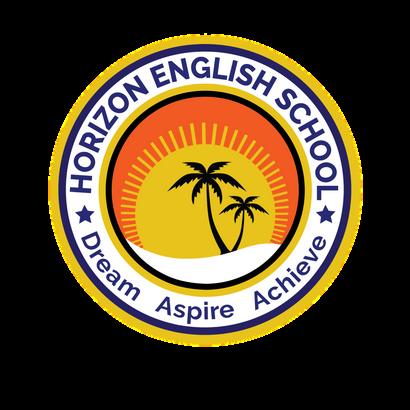
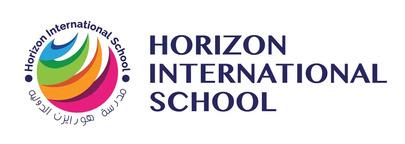
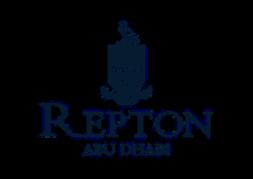

1a. Do we have distinct ways of marking the transition between phases of our school that students are excited by?
1b. Could we benefit from seeking student feedback (as well as parent feedback), regarding our approach to mixing classes?
2a. How do we involve students in the process of welcoming new students into our school (or section of the school)?
2b. Could we adopt any new initiatives to partner with our students when welcoming new students into the school?
3a As a school, do we have a consistent approach to how much time is devoted to relationship-building amongst peers following transitions?
3b. Could we trial any new initiatives in our classrooms to help relationship-building throughout the entire class (e g speed-dating inspired ice-breakers or rotational seating plans)?
4a Do we feel confident that new students consistently feel able to seek out support from their form tutor, as they know we have an open-door policy?
4b Could we benefit from implementing a short, standardised survey to check in on all students in a class with ease during the induction period?
5a. Do we effectively and consistently use assessments (both informal and formal) as a tool to quickly understand students’ academic abilities and preferences during the induction period?
5b Could we use self-evaluation as a tool for students to share their feelings regarding academics during the induction period?

© 2025 Cognita Holdings Limited. All rights reserved.
www cognita com
Launched in 2004, we are an extraordinary community of diverse yet connected schools, spanning 5 regions
Each of our schools gets to be part of something bigger – and to think bigger about its future. Each of our teachers is inspired and informed by the collective wisdom and proven best practice of over 100 schools
Each of our students receives a truly world-class education, ready to make the most of their individual qualities but conscious of the wider contribution they can make to society
Individual focus Global impact That’s what allows us to empower every school, teacher and student to focus on what they do best It’s what allows them to thrive
41-42 Eastcastle St, London, W1W 8DY UK